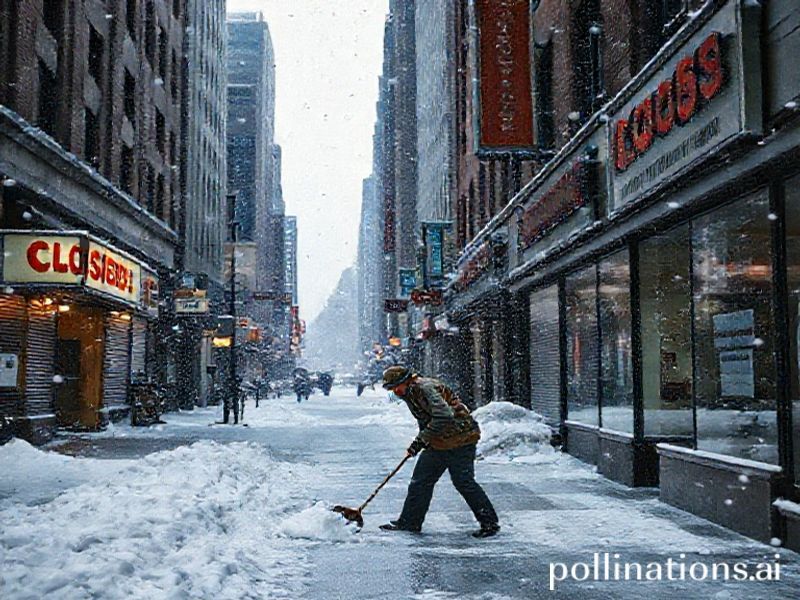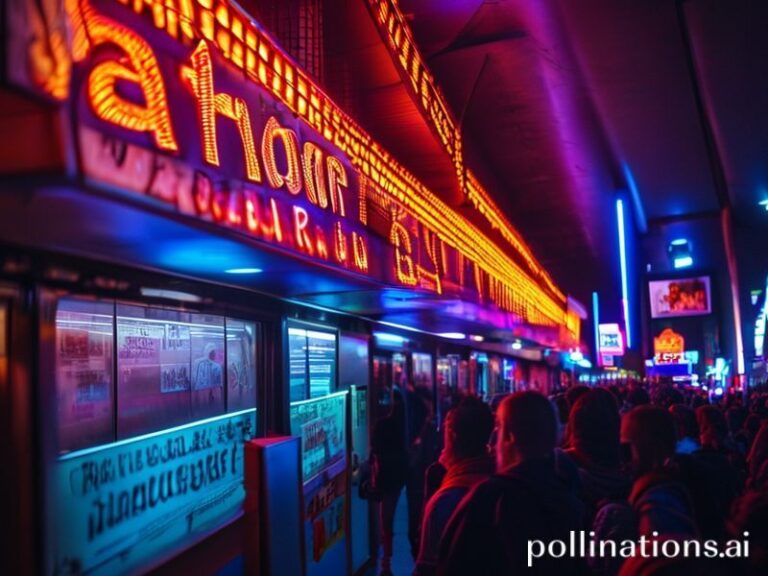When the World Hits the Snooze Button: The Global Phenomenon of ‘Closings and Delays’
# **When the World Hits the Snooze Button: The Global Phenomenon of “Closings and Delays”**
Ah, the sweet symphony of life’s little inconveniences—nothing quite like waking up to a notification that says, “Due to unforeseen circumstances, your plans are now postponed.” Whether it’s a snow day, a power outage, or a global pandemic, “closings and delays” have become the unsung heroes of our collective internet vocabulary. But why is this topic trending globally, and what does it say about our world today? Let’s dive in.
### **The Cultural Context: A Universal Language of Frustration (and Relief)**
From Tokyo to Texas, closings and delays are a universal experience. They’re the reason why your favorite coffee shop is closed when you need that caffeine fix, why your flight gets delayed when you’re already late, and why your favorite streaming service buffers at the most dramatic moment. But here’s the kicker: closings and delays aren’t just about inconvenience—they’re also about relief.
Think about it. When you hear that your office is closed due to a snowstorm, do you groan or do you do a little happy dance? For many, closings and delays are a blessed reprieve from the grind. They’re the universe’s way of saying, “Hey, take a break, you deserve it.” And in a world where hustle culture is king, that’s a rare and precious gift.
### **The Social Impact: A Digital Watercooler Moment**
Closings and delays have become a digital watercooler moment. Whether it’s a school closing early, a major event getting postponed, or a service disruption, people flock to social media to share their reactions. Memes, tweets, and viral videos about closings and delays have become a staple of internet culture.
Take, for example, the infamous “snow day” memes that flood social media every winter. They’re a mix of excitement, frustration, and sheer chaos. Or the collective groan when a major tech outage hits, turning the internet into a ghost town for a few hours. These moments bring people together in a shared experience, creating a sense of community—even if it’s just to complain together.
### **Why It’s Significant: A Reflection of Our Times**
Closings and delays are more than just inconveniences; they’re a reflection of our times. They highlight the fragility of our systems—whether it’s infrastructure, technology, or even the weather. They remind us that no matter how much we plan, life has a way of throwing curveballs.
But perhaps the most significant aspect of closings and delays is their impact on mental health. In a world that’s always on, these moments force us to pause. They give us permission to slow down, to breathe, and to reconnect with ourselves and our loved ones. In that sense, closings and delays are a gift—even if they’re wrapped in frustration.
### **The Future of Closings and Delays**
As the world becomes more interconnected, closings and delays will only become more prevalent. Climate change, technological advancements, and global events will continue to disrupt our plans. But here’s the silver lining: we’re getting better at adapting. We’re learning to embrace the unexpected and find humor in the chaos.
So the next time you see a notification about a closing or delay, take a deep breath. It’s not just an inconvenience—it’s a reminder to slow down, laugh a little, and enjoy the unexpected.
—







